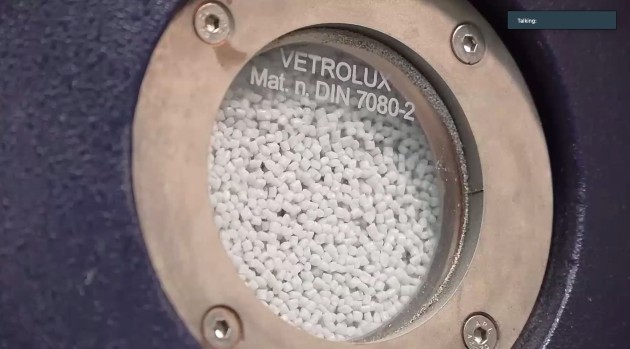The Martogg Group, along with Sustainable Sally, recently invited Australian Institute of Packaging (AIP) members to a virtual tour of its Life Cycle Management (LCM) division in Victoria, to showcase its capabilities and learn of its push for a circular economy for plastics.
Operating as the company's sustainability division, Martogg LCM is dedicated to providing businesses and brands throughout Australia and the world with an extensive range of recycled polymers, both for industrial and food contact applications.
“We’ve always had a circular mentality to plastics since our inception, using recycled feedstocks in all areas of our business – from selected master batch and engineering resins, to commodity compounding and outright recycling,” says Austen Ramage, group sustainability manager for Martogg Group.
“We feel that as a recycling business, we are uniquely positioned as a compounding company that also recycles, as opposed to an outright recycler. It might seem like a subtle difference, but because of this we take all 46 years of our compounding experience into every new recycled formulation or batch that we manufacture.
“We believe that brands and retailers have a clear role to play in this as well, including but not limited to educating consumers of the benefits of plastic, buying products that are packaged in recycled content, and also how to recycle correctly and reuse plastics wherever possible. From our experience, plastic is far too valuable of a resource to only use it once.”
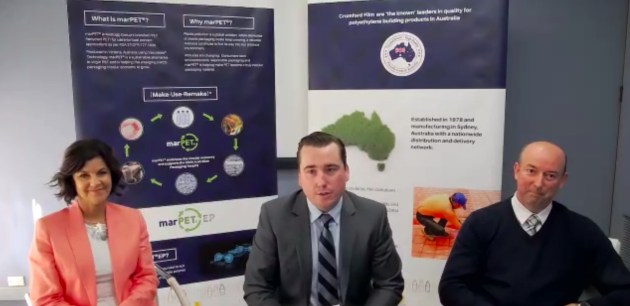
The Group recently joined forces with leading sustainability advocate Sustainable Sally Williams to further bring awareness to the importance of the circular economy in Australia for converters, brand owners, and consumers.
During the virtual tour, Sustainable Sally and Martogg LCM premiered a three-part video series that discussed the current state of the recycling industry in Australia, showcasing the technologies involved and recycled polymers available, and sharing the story of some great work being done in this space.
“The devastating effects discarded single-use plastics could have on our environment can only be described as catastrophic, and if we don’t come up with sustainable solutions soon, it won’t be long before the contamination will directly affect us all,” says Williams.
“However, we have reached a turning point, and thanks to Martogg and other visionary recycling companies, there is now a sustainable solution that could extend the lifecycle of these valuable polymers indefinitely.”
According to Ben McCulloch, product manager – marPET, Martogg Group, we have been benefiting from plastic in some way, shape or form due to its many different uses, which is why it has dominated the packaging industry for decades.
“We’ve got a stockpile of waste that is growing at a pretty rapid rate, with thousands of tonnes of plastic every day, and we need to find a solution that isn’t just putting it into the ground, shipping it offshore, or letting it enter our environment,” McCulloch says.
“We have to take our own responsibility for it, and the good news is that plastic is inherently recyclable, so the whole notion around plastic being a single-use material, it is false.
“We have been recycling for years and the beauty is you only have to look as far as PET as an example to see that this material as a post-consumer material can be recycled back into food grade resin suitable again for the same application from whence it originated.
“So we now have got an opportunity to direct that waste plastic through the recycling facility and put it back out into consumer goods, and it is so important for the circular economy.”
Martogg itself has its own brand of rPET too, which it calls marPET, which according to Williams, represents a turning point in the eradication of single-use plastic as it is a totally recycled raw material that can effectively be reused over and over again.
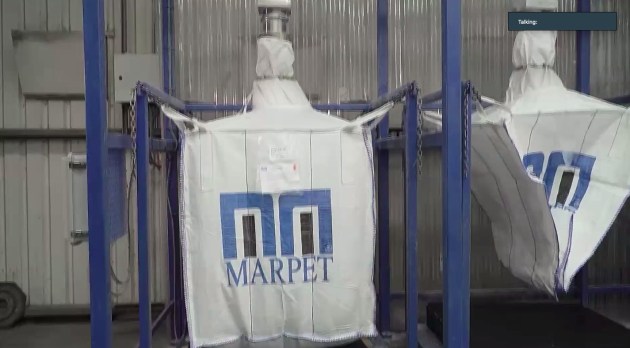
It is food contact approved and is produced via Martogg Group’s three Vacurema lines in its Dandenong facility, which has the production capacity of 23,000 tonnes per annum.
“Recycled PET can and should be used into all applications, but specifically, PET as a resin is a superior material and a dominant material in food packaging and other FMCG products,” McCulloch says.
“Now, the beauty of recycled PET is that it can be used directly in place of virgin PET, so it is a direct substitute – it also has to be FDA compliant, it is durable, it is robust, it is essentially the same thing as virgin PET. We are not losing any of the properties.”
“We use the Vacurema machines to treat the material through the reactors, then decontaminating it, so it is actually purifying the resin. It has to be that way because a lot of these recycled materials are going back into food contact applications,” adds Greg Kerslake, manufacturing manager, Martogg.
“Very fine particulates are removed through this process to ensure that the quality of the material doesn’t have any inclusions or any contaminants that may be introduced into the actual finished product.
“Once everything is then sampled, quality control passed, we can then put it into stores and away it goes. It can go around and around again infinitely, becoming a completely circular process.”
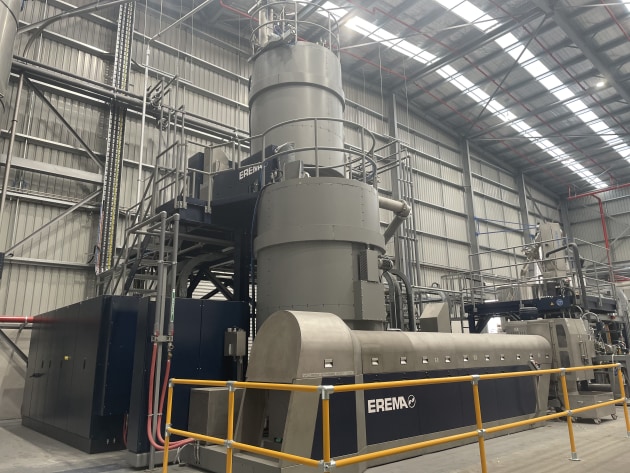
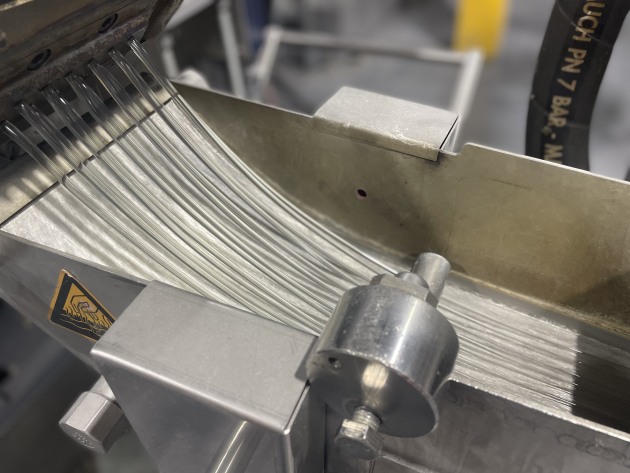
The materials are then delivered to several of Martogg’s partners, including Victorian-based RPAK, who manufactures and distributes a wide range of recycled food packaging to industry, including those made with marPET.
“Everything that we make is made from 100 per cent recycled material, and ideally, from the post-consumer industrial waste,” explains Michael Reid, managing director, RPAK.
“We would make probably 50 per cent of all of our products with marPET, and industry has received that very well. If we asked that question five years ago maybe not so, because of the slight price premium, but there’s been a change in thinking recently due to more awareness and education coming through about recycling and sustainability.
“marPET gives us the opportunity to increase the amount of recycled content that we can use. Without marPET, I would have to be running virgin materials only, and I would then be able to mix post-industrial scrap from my own processes, but I’ll only achieve 30 per cent maximium. marPET enabled us to take that to 50 per cent, and in some cases, 100 per cent when required.”
McCulloch believes it is partnerships like this that will push forward Australia’s transition to a circular economy.
“It is incredible that we have a manufacturer in RPAK who is a clear advocate for sustainability,” McCulloch says.
“They are playing their part. They are using recycled PET back into their packaging. And they already have many businesses and brands that are aligned with them for their packaging solutions.
“But I do believe that it begins and ends with the consumer. If consumers are actively seeking product packaging such as this that contains recycled content, they are buying it and know the story behind it, then no doubt we’ve got a circular economy on our hands.”
